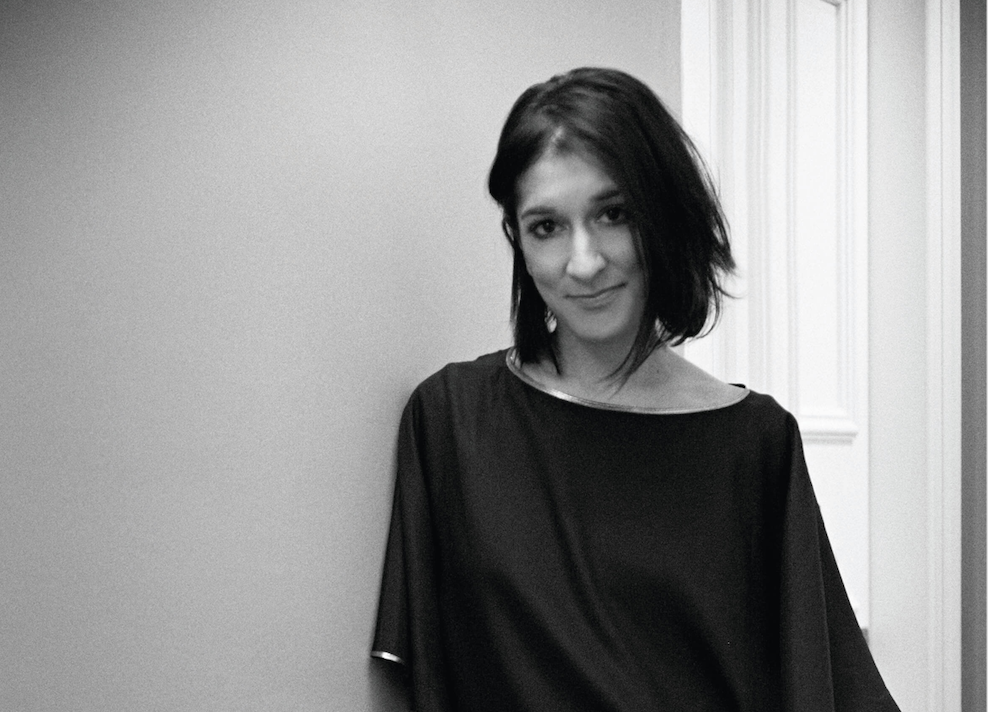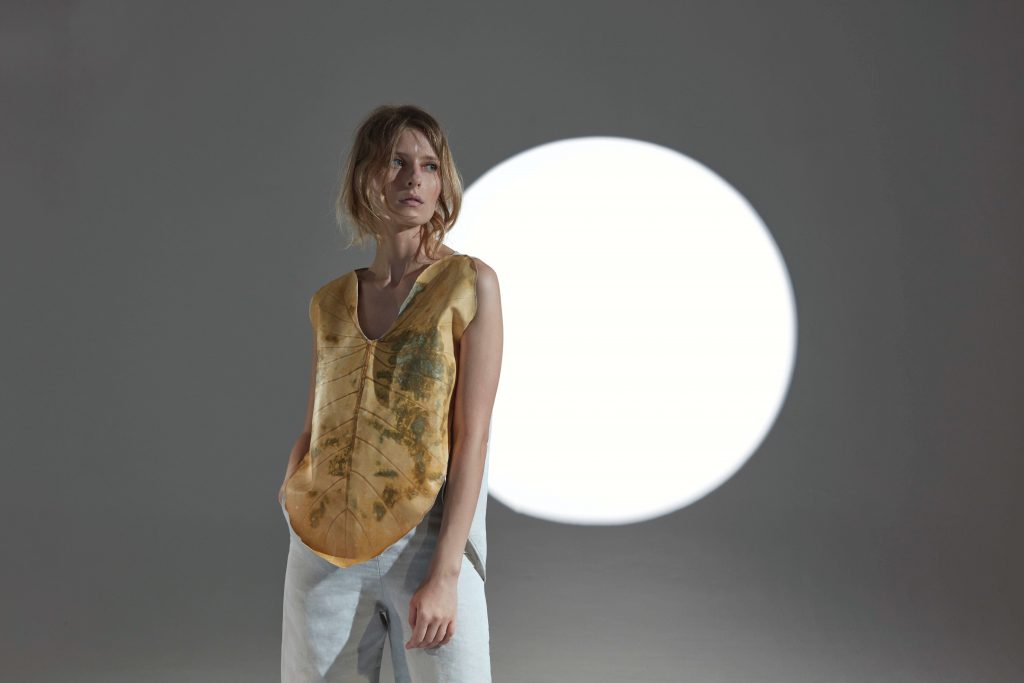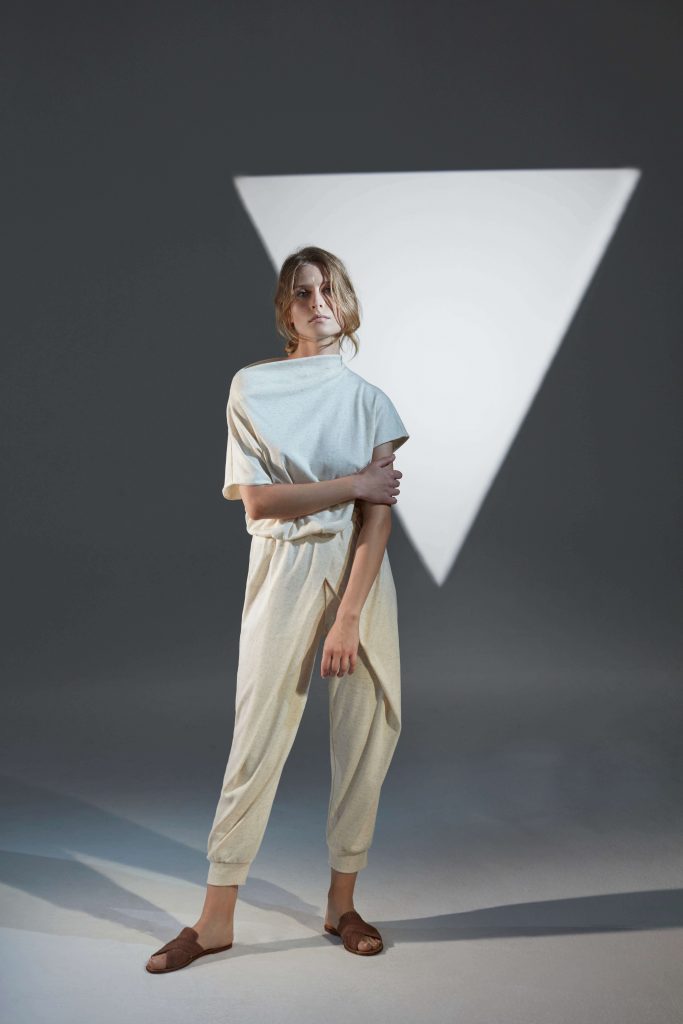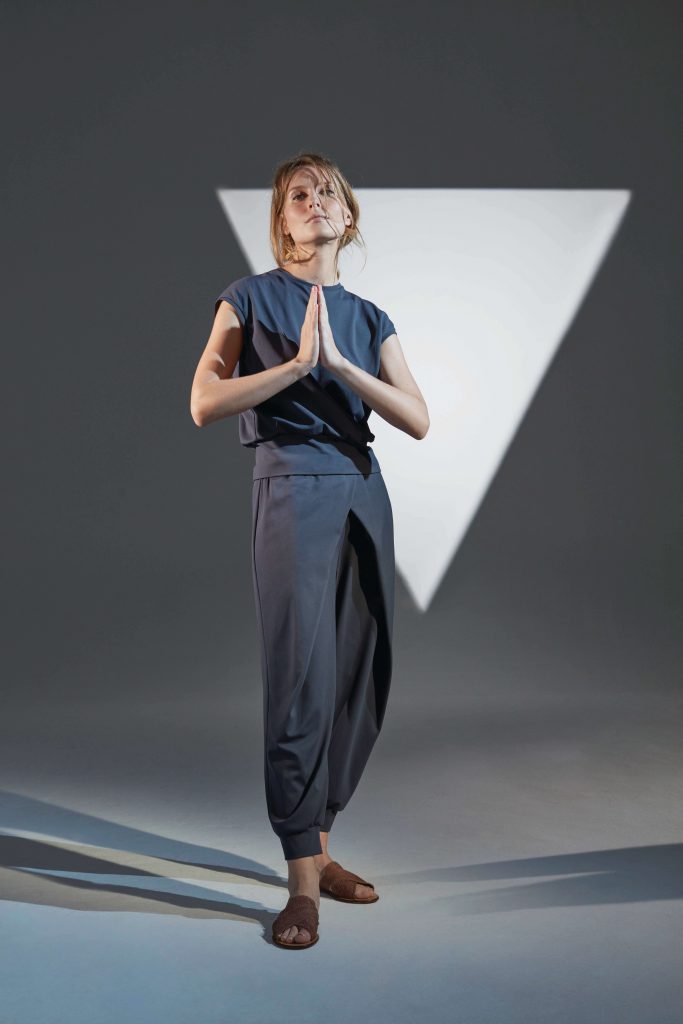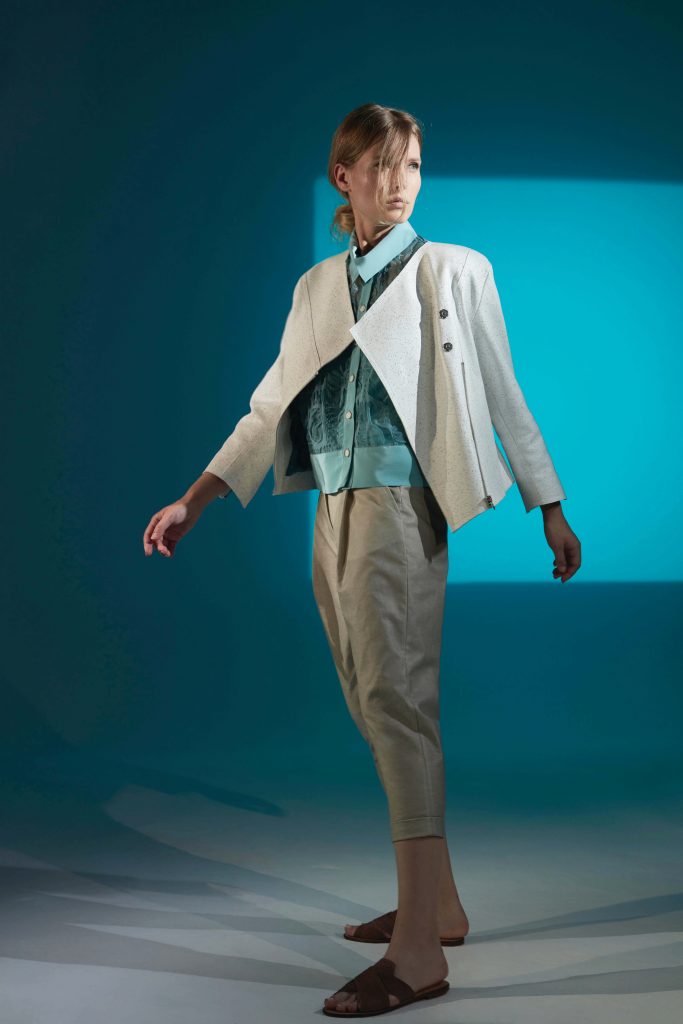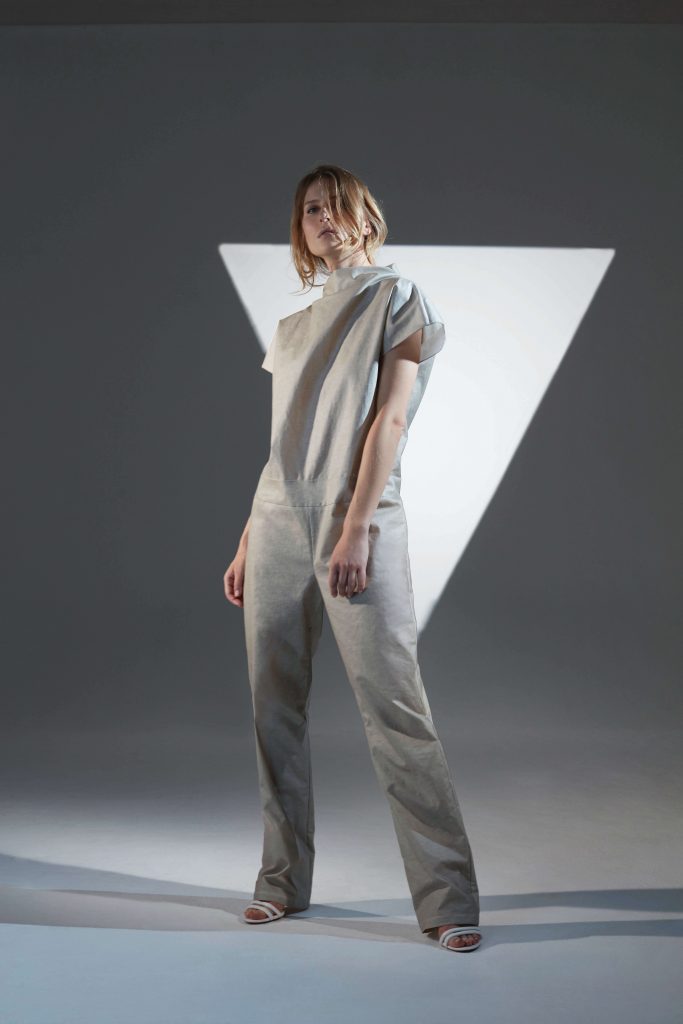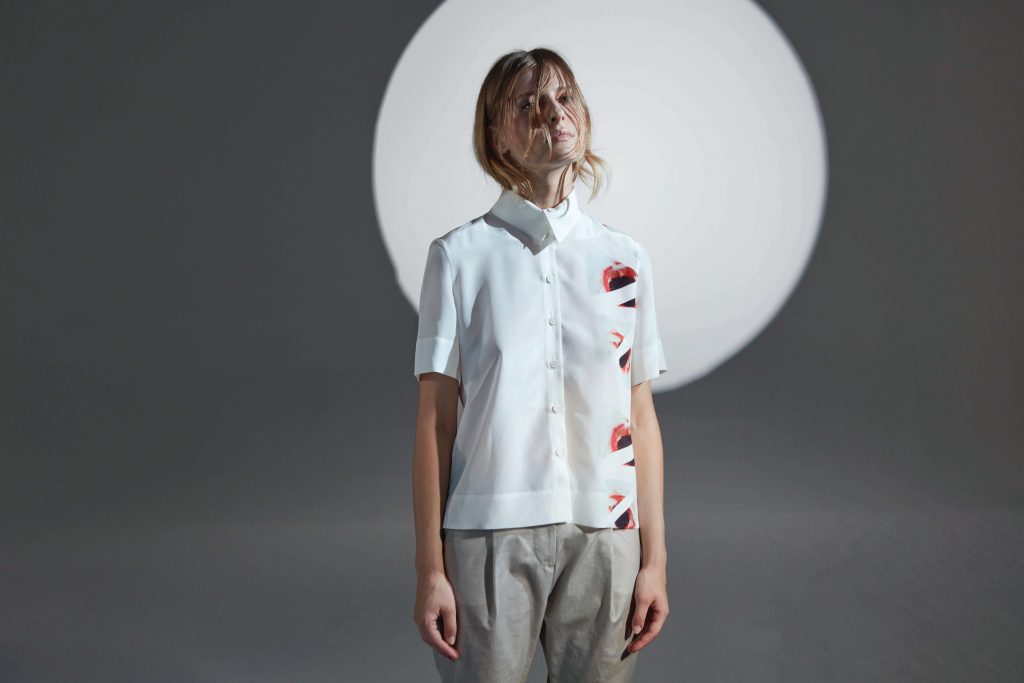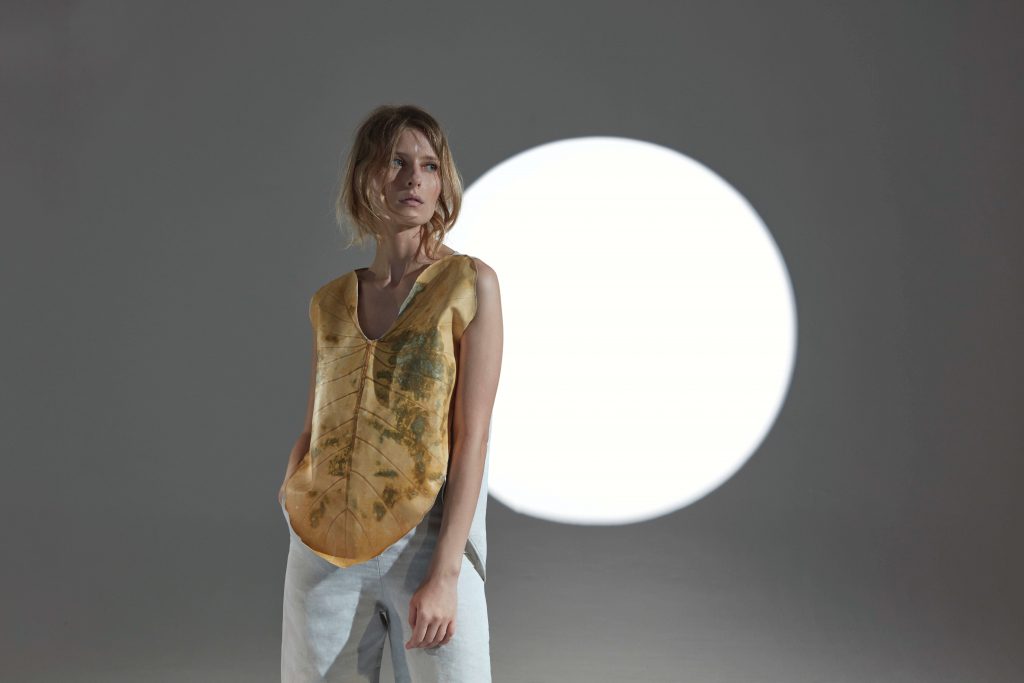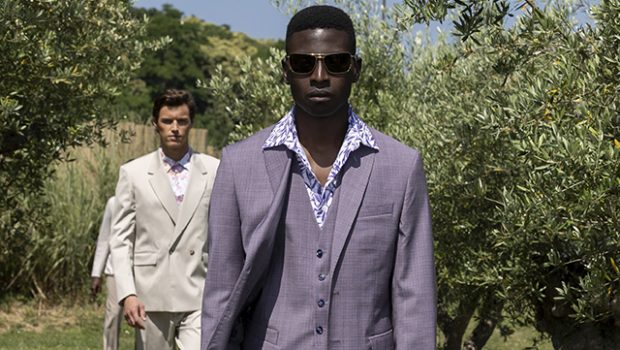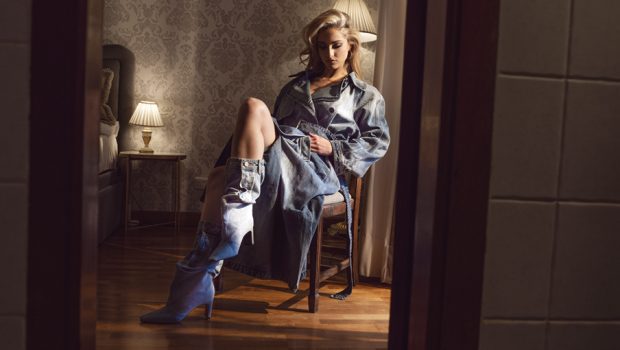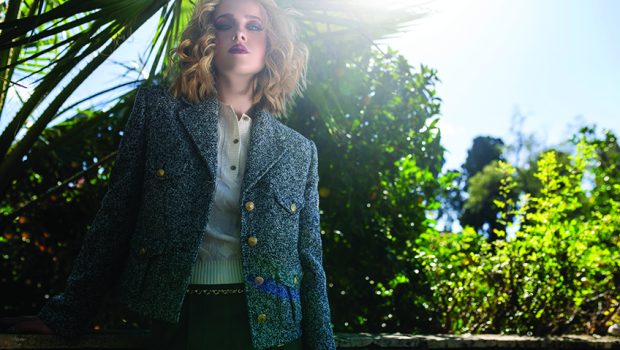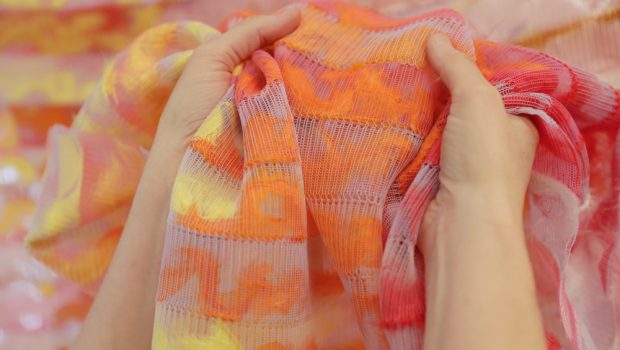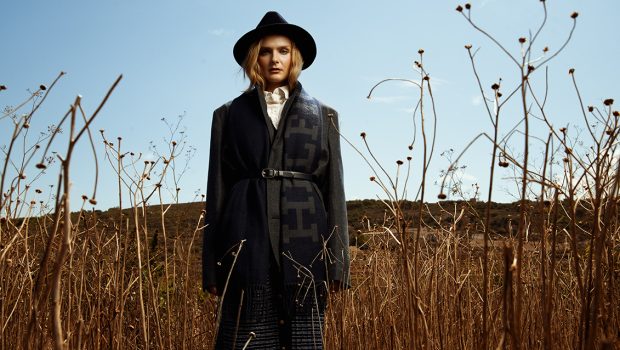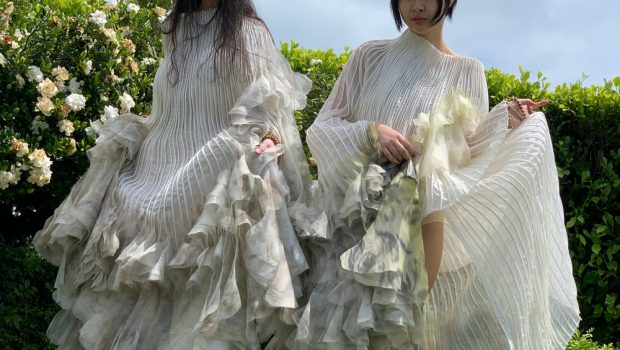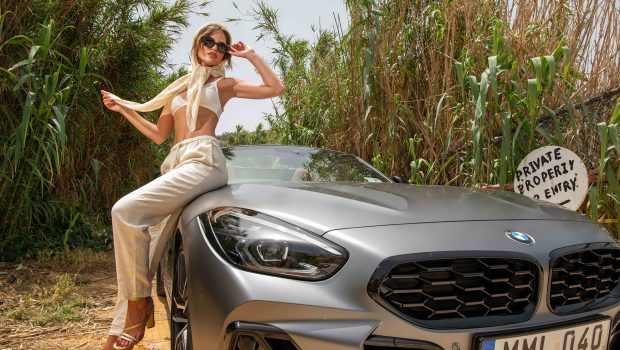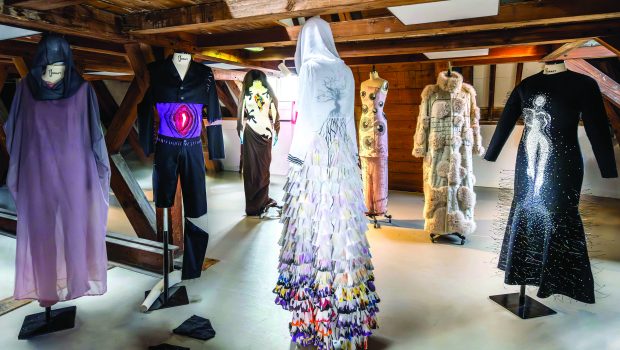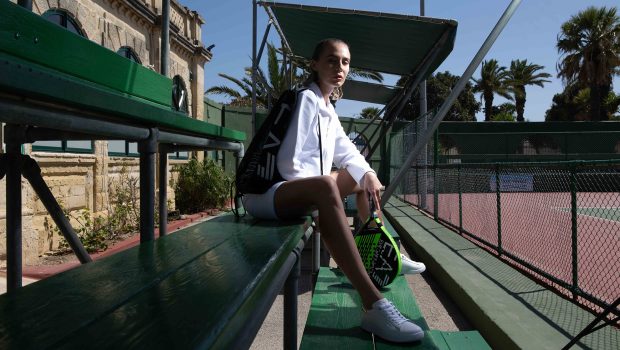BAV Tailor design
Sustainable designer Bav Tailor talks about her brand, inner ecology and the importance of being conscious.
Respect your body and your sphere By Lira Bekbolatova
The Bav Tailor brand is a collective fusion of non-conformist clothing of generationless silhouettes and effortless geometrical volumes inspired by design, architecture and Eastern philosophies.
Born in London, Indian by origin Bav Tailor in 2015 launched a sustainable luxury brand for the next ethically aware generation. Upholding the tradition of her grandfather’s great interest in fashion, Bav Tailor represents the true hallmark of authenticity. 100% Made in Italy and a solid 360° sustainability manifesto runs core to her brand ethos.
‘Respect your body – respect your sphere’.
This is your brand’s mantra, can you talk us through it?
Yes. It’s about respecting your body through the clothes and the materials that you wear and simultaneously respecting the sphere that surrounds you. I decided to follow this manifesto. And I think it was the same year that the UN Sustainability Development Goals were launched as well. So using that as my basis, as my guide, I created my own, from the sustainable design to the certified materials, to the transparent production processes and the social contribution. It was a way to communicate sustainability through a product.
Do you think your Indian ancestry somehow influenced your brand ethos?
My surname is Tailor. My Indian ancestors come from a part of India, which is known for dressmaking. My grandfather had his own atelier as well. So I think it’s a part of my DNA.
Your mantra reminds me of one of the yoga step – ahimsa, which means
“do not harm”.
Yes. Exactly. This is the mantra.
What is your fashion all about?
It’s a fashion that’s generationless. So it’s not about targeting millennials or over 60’s. It’s about someone who is in tune with trying to live more consciously that they are careful about what they eat as well as what they put on their skin.
What materials do you typically use?
All of my materials are mostly natural fabrics that can be beneficial to the skin as well. There’s an important wellness factor to the project as well. I’m also trying to communicate and to inspire how one can understand more about the inner ecology. I have a wide range of materials because the base of my research starts with the materials. So it’s not the design – it’s the material. So once I see them, that’s when I proceed to create the designs. Materials can range from an actual leaf which is collected sustainably from the Amazon to a recycled frisk fish skin sourced from the fisheries using recycled hydro energy. And the, there are materials which are alternatives to kinds of cotton and silks.
I know you also support talented youths, can tell us more about that?
Yes, I have a project where I invite artisans or creatives to collaborate. It’s also a way for me to showcase their creative talents. For example, I had an artisan girl from Indonesia – she does beautiful laser weaving techniques. Last season I collaborated with a Roman photographer. It can be an artist in any field. It doesn’t necessarily need to be within fashion.
Is this platform related to sustainability as well?
Well, I provided one of my artists with offcuts of my materials. So she created a masterpiece dress using that. And the photographer has a photography collection of flowers, and the concept is spreading love through her photography. So I used the imagery and printed it in a certified pho on organic silk. So there’s always like some fusion between their creativity and how I incorporate it into sustainability.
There’s a belief that sustainable fashion is twice as more expensive than fast fashion. People often ask: ‘why should I spend that much money on a sustainable dress?’ How would you answer that?
I think it’s the fashion industry and most importantly, the distributors have to educate the clients. Maybe even some kind of government legislations that have to impose that distributors need to have a certain amount of sustainable brands. Because if the distributors do it, then, for sure, they will request more designers to be sustainable. And that will impose the designers to change their business model. It will just become the norm, you know. There are already a lot of distributors that are significantly ahead of the times and are focusing on this. But unfortunately, there are still a lot of stores that want to pay a cheap product and implement a considerable markup, which is unnecessary.
So the solution is to educate consumers?
Yes. That’s the new way.
What has been the impact of COVID-19 on the fashion industry?
So many producers got their orders cancelled. I know that there are producers that have a considerable amount of stock backlogged because the global brands aren’t collecting the stock. There are negatives and on the other hand – there are also positives. It’s been a very good period for emerging designers to shine through, especially the sustainable ones.
It’s been a challenging situation where we have to as an industry rethink our systems. Because unfortunately, it was not working and something needed to change. So, you know, I hope that with learning from our experiences, we’ll head into 2021 or with a new vision. We can’t go back to the old ways because it’s just non-existent anymore. We can never go back to the old ways. We need to think of new, innovative ways of moving forward.
What do you recommend to a person before shopping?
Be curious. If you buy something – it means that you want to be a part of that brand. You want to be a part of the tribe. Ask questions and be curious: how was that product made? Where was it made? What material is this? And what does this brand stand for?
What inspires you to do what you do?
I have a product to sell, and through the product, I’m able to provide a social contribution. That was the ultimate goal, to be honest, in the very simplified version then. Now, it’s extended to mentoring or communicating about in psychology and wellness. But initially, when I thought of the project in the business sense, it was ‘OK, launch a project that is conscious, sell a product and have some money to give to charity’.
I’m a member of the Big Blue Ocean Project in London that helps clean up oceans. I support water charities that provide water to developing countries. So every item that’s sold – there is a tree will be planted. So it’s just it’s a very personal project for me. And it’s more about giving back rather than just having a business and making a profit. Bav Tailor is a member of British Fashion Council and selected Designer by the Italian Camera Moda Fashion Trust for the project ‘Together for Tomorrow’ and ‘CNMI Designers for the Planet’. She has been awarded the first Taomoda 2020 Eco-Luxury Award, during Taormina Fashion Week; the ‘Conscious Designer’ award by the Arab Fashion Council and nominated Vogue Talent finalist of ‘Who Is On Next 2019, scouting project promoted by Altaroma and Vogue Itali

